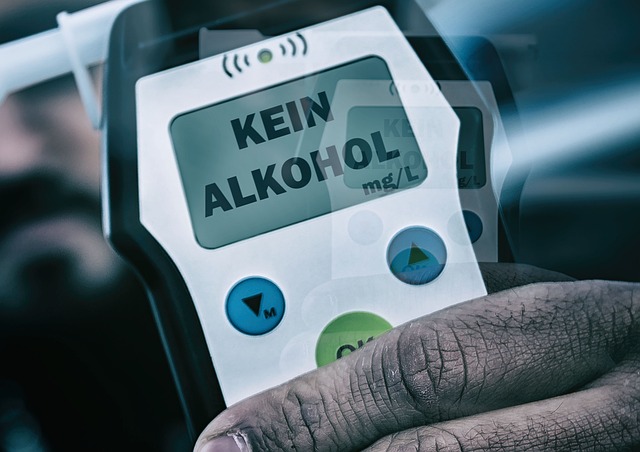Navigating global immigration laws with a DUI requires careful planning, as strict rules vary across countries. Staying informed about visa needs, travel documents, and transportation restrictions is crucial for safe cross-border travel. Alternative transit options like public transport and ride-sharing services play a vital role in responsible mobility, offering secure environments and appealing particularly in post-pandemic eras. Global initiatives focus on innovative, sustainable transportation solutions like electric vehicles and autonomous driving to reduce congestion, emissions, and enhance safety, influencing migration patterns and public safety. This collaborative approach advances transit technology worldwide, providing accessible, affordable, and safe alternatives for those who choose not to drive under the influence.
In today’s globalized world, understanding international immigration laws and their intersection with alternative transit options is crucial. As cross-border travel becomes increasingly common, ensuring safe transportation is paramount, especially considering the implications of driving under influence (DUI) across borders. This article explores a range of alternative transit solutions from public transport to ride-sharing services, offering a comprehensive global immigration and DUI perspective on the future of sustainable and secure mobility.
- Understanding Global Immigration Laws and Alternative Transit
- DUI and Cross-Border Travel: Implications for Alternative Transport
- Safe Options: From Public Transport to Ride-Sharing Services
- The Future of Alternative Transit: Innovations in a Global Context
Understanding Global Immigration Laws and Alternative Transit

Navigating global immigration laws can be complex, especially for those considering alternative transit options. With varying regulations and strictures worldwide, understanding international travel rules is paramount to ensuring a safe journey. For individuals facing DUI (Driving Under the Influence) charges, these laws become even more stringent, as many countries have zero-tolerance policies and strictly enforce penalties. This complexity necessitates careful planning for travelers seeking alternative transit methods, such as trains or buses, to avoid potential legal pitfalls while adhering to global immigration perspectives.
When exploring alternative transit safe options, it’s crucial to stay informed about immigration requirements, especially when crossing borders. Different countries have distinct rules regarding travel documents, visa needs, and even permissible modes of transportation for individuals with DUI convictions. Staying vigilant and proactive in researching these laws can help travelers make informed decisions, ensuring they remain compliant while exploring unique travel routes.
DUI and Cross-Border Travel: Implications for Alternative Transport

In the context of alternative transit options, understanding the implications of driving under the influence (DUI) is crucial, especially when considering cross-border travel. Global Immigration and DUI Perspectives play a significant role in shaping safe travel protocols. When individuals opt for innovative transportation methods like ride-sharing apps or public transit, they are not only contributing to reduced traffic congestion but also ensuring personal safety and compliance with legal requirements.
Cross-border travelers must be aware of varying DUI laws and regulations worldwide. These differences prompt travelers to make informed decisions about their transport choices. For instance, some countries have stricter penalties for DUI offenses, which might influence a traveler’s preference for designated drivers or public transit over personal vehicles when navigating unfamiliar territories.
Safe Options: From Public Transport to Ride-Sharing Services

When discussing safe transportation options, especially in the context of global immigration and DUI perspectives, public transport stands out as a cornerstone of responsible mobility. Efficient and well-regulated systems reduce traffic congestion, lower emissions, and offer a secure environment for commuters, particularly those navigating unfamiliar cities. Many metropolitan areas worldwide have invested heavily in enhancing public transit networks, incorporating modern technology to improve accessibility and safety features, making them ideal choices for immigrants settling into new environments.
Complementing traditional public transport are ride-sharing services that have gained immense popularity globally. These innovative platforms not only provide a convenient way to travel but also prioritize passenger safety through rigorous driver screening processes, real-time tracking capabilities, and advanced security measures. This has become especially appealing in the post-pandemic era, where many travelers prefer more private and sanitised transportation options. With a focus on global immigration and DUI considerations, ride-sharing services offer a promising alternative for newcomers to navigate unfamiliar routes while ensuring their well-being.
The Future of Alternative Transit: Innovations in a Global Context

The future of alternative transit is shaped by a global push for innovative, sustainable transportation solutions. With growing global immigration and rising concerns about DUI (driving under the influence), cities worldwide are exploring alternatives to traditional public transport. This shift is driven by the need to reduce traffic congestion, lower carbon emissions, and ensure safe mobility options for all. Electric vehicles, autonomous driving technology, and smart traffic management systems are at the forefront of these advancements. These innovations promise to transform urban landscapes, offering efficient, eco-friendly, and safer commuting experiences.
In terms of global immigration and DUI perspectives, alternative transit options can significantly impact migration patterns and public safety. For immigrants settling in new cities, accessible and affordable public transportation is crucial for integration. Moreover, with stricter DUI laws worldwide, alternative modes of transport like ride-sharing services, electric scooters, and bike-sharing programs provide safe alternatives for those who choose not to drive under the influence. This global context fosters a collaborative environment where cities share best practices, leading to rapid advancements in transit technology and safety standards.
In conclusion, navigating global immigration laws while exploring alternative transit options is essential for safe and efficient cross-border travel. Understanding the implications of DUI (Driving Under the Influence) restrictions and leveraging innovative services like public transport and ride-sharing can enhance international journeys. As technology advances, the future of alternative transit promises to revolutionize global mobility, offering safer, more sustainable solutions that cater to diverse needs, particularly in light of evolving Global Immigration and DUI Perspectives.






